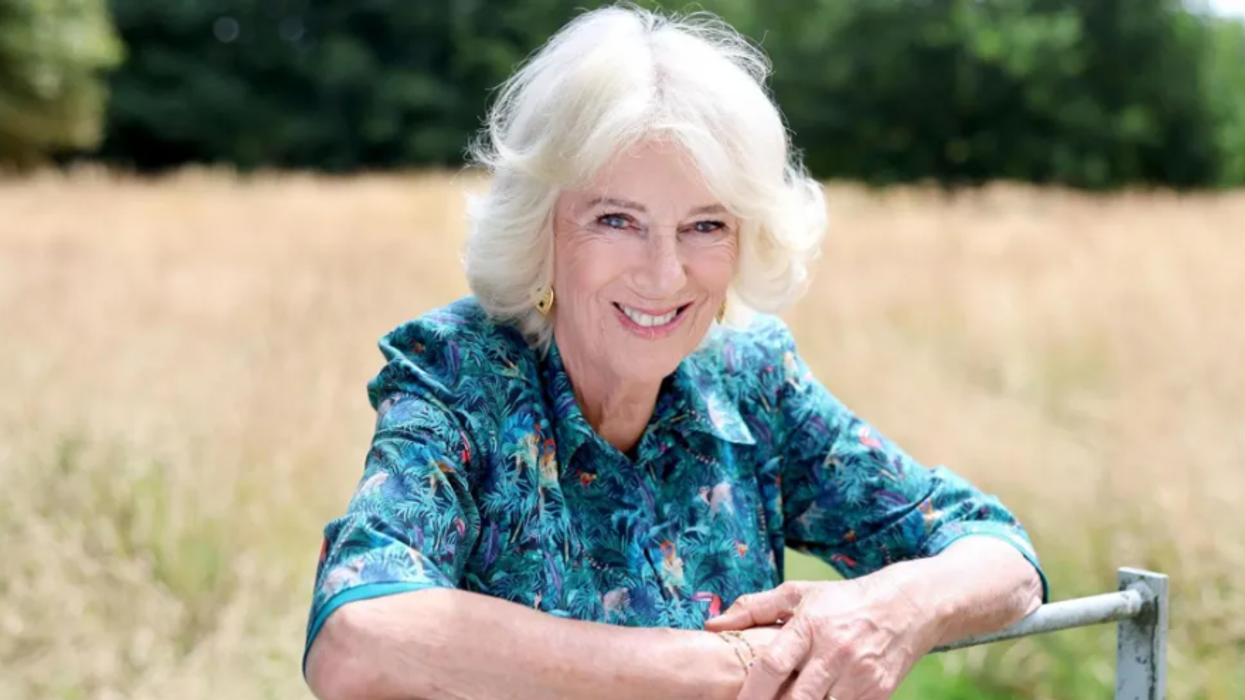Highlights
- Queen Camilla turns 78 and is expected to celebrate privately at home
- Official birthday portrait taken at Raymill House, Wiltshire
- Outfit features rainforest-themed print; jewellery includes iconic diamond ring
- Recent royal duties include state visits, Trooping the Colour, and military engagements
- Appointed Vice Admiral of the UK on the same day
Queen Camilla marks birthday with relaxed countryside portrait
A new photograph of Queen Camilla has been released by Buckingham Palace to mark her 78th birthday. The image, captured by royal photographer Chris Jackson, shows the Queen leaning on a metal gate in a field at her private home, Raymill House, in Wiltshire.
She is wearing a turquoise dress with a rainforest-themed print featuring monkeys, toucans, and lemurs. Her accessories include gold drop earrings, her wedding band, a five-carat emerald-cut diamond engagement ring, and a distinctive gold ring composed of circular plaques.
Private birthday after a year of public engagements
Unlike last year, when Queen Camilla carried out official duties on her birthday during the State Opening of Parliament, this year’s occasion is expected to be celebrated in private.
The photo, taken earlier this month, provides a personal glimpse of the Queen in a more relaxed setting, offering contrast to a busy few months of public service.
A year of significant royal activity
Earlier this year, Queen Camilla and King Charles III celebrated their 20th wedding anniversary. Despite the King’s ongoing cancer treatment, the couple have maintained a strong presence in national and international events.
Recent engagements have included:
- Hosting French President Emmanuel Macron during a UK state visit
- Attending Trooping the Colour in June
- Visiting Canada in May for the opening of the country’s parliament
This week, the Queen also visited a children’s hospice in Devon and HMS Astute, a nuclear-powered Royal Navy submarine, docked in Plymouth.
A one-of-a-kind birthday gift from the Royal Navy
While aboard HMS Astute, Queen Camilla received a unique birthday present from Commander Christopher Bate: a roll of clingfilm mounted in a commemorative holder. The material had previously been used to fix a defect in the submarine’s main engines. A plaque on the holder read: “Clingfilm keeping nuclear submarines at sea.”
Camilla appeared amused and appreciative, remarking: “There's nothing more useful, brilliant, how wonderful.”
Royal Navy honour on birthday
On the same day as her visit to HMS Astute, it was announced that Queen Camilla had been appointed Vice Admiral of the United Kingdom. The honorary military title recognises her continuing support of the Royal Navy and its service personnel.
The new portrait and the appointment reflect both the personal and public aspects of Queen Camilla’s evolving royal role as she enters her 79th year.





